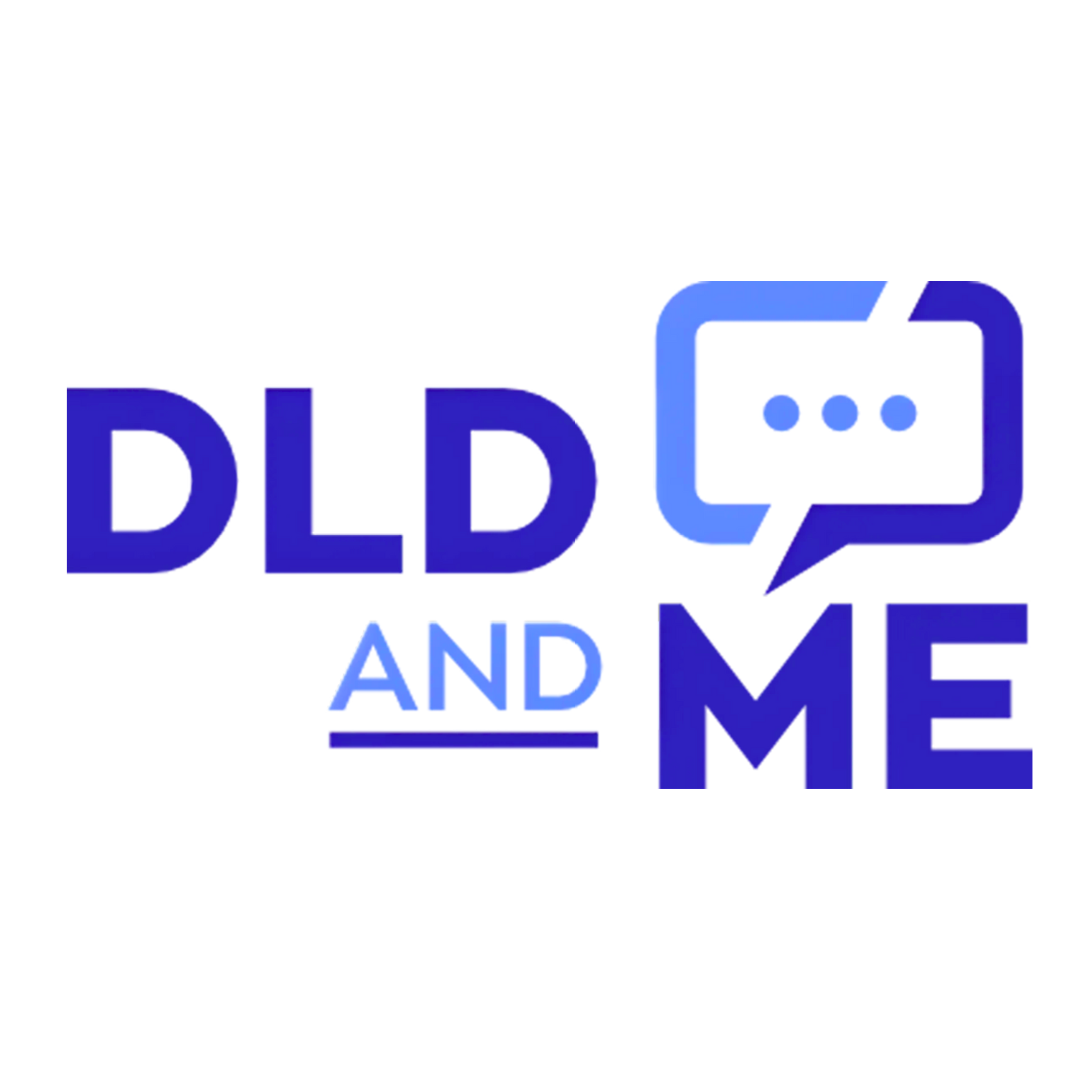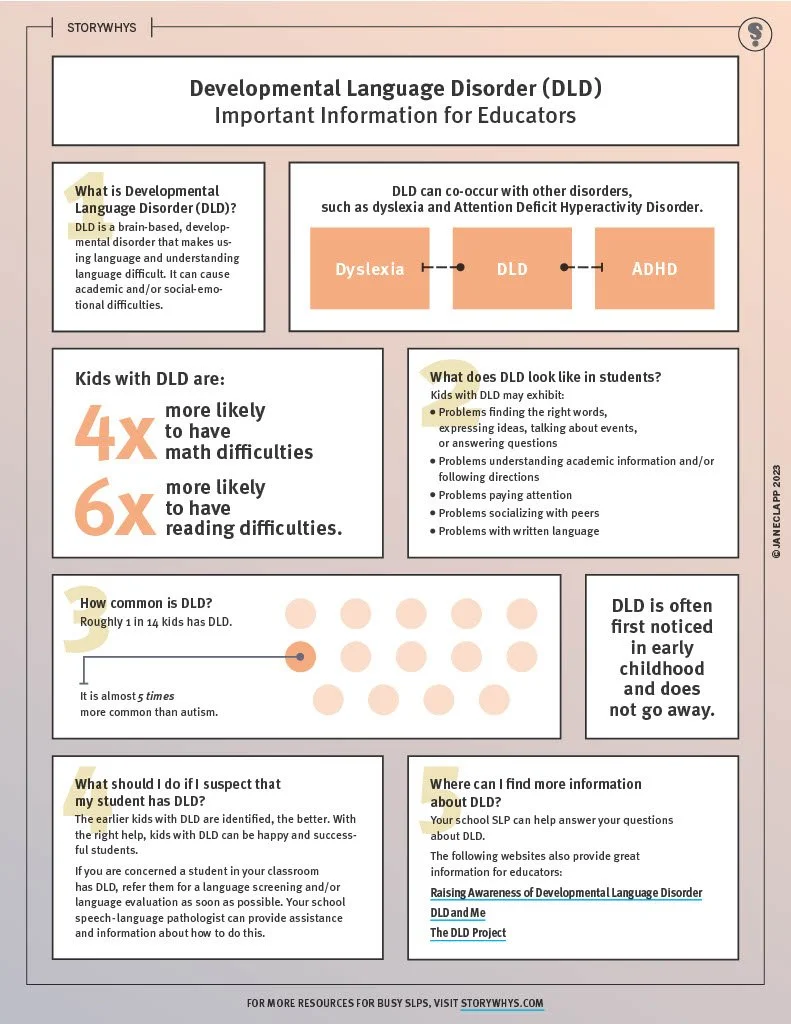DLD Fact Sheet for Educators
Written By:
Guest Contributor
Developmental Language Disorder (DLD) Important Information for Educators
DLD is a brain-based, developmental disorder that makes using language and understanding language difficult.
It can cause academic and/or social-emotional difficulties. DLD can co-occur with other disorders, such as dyslexia and Attention Deficit Hyperactivity Disorder.
Kids with DLD are 4x more likely to have math difficulties and 6x more likely to have reading difficulties.
Kids with DLD may exhibit:
Problems finding the right words, expressing ideas, talking about events, or answering questions
Problems understanding academic information and/or following directions
Problems paying attention
Problems socializing with peers
Problems with written language
Roughly 1 in 14 kids has DLD. It is almost 5 times more common than autism.
DLD is often noticed in early childhood and does not go away.
Downloadable InfographicWhat should I do if I suspect that my student has DLD?
The earlier kids with DLD are identified, the better. With the right help, kids with DLD can be happy and successful students.
If you are concerned a student in your classroom has DLD, refer them for a language screening and/or language evaluation as soon as possible. Your school speech-language pathologist can provide assistance and information about how to do this.
Where can I find more information about DLD?
Your school SLP can help answer your questions about DLD. The following websites also provide great information for educators:




